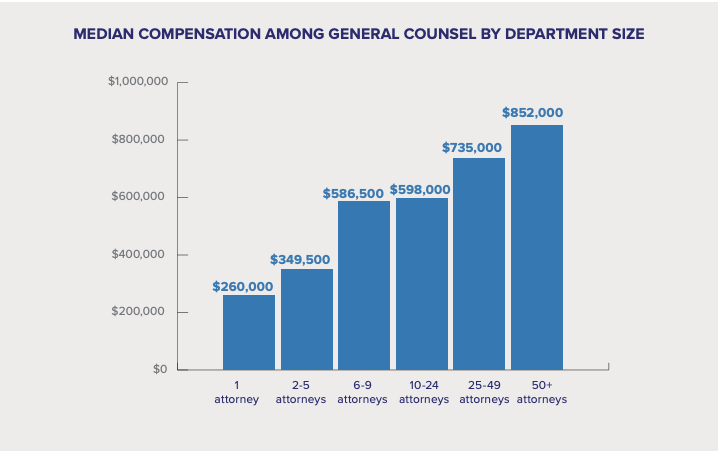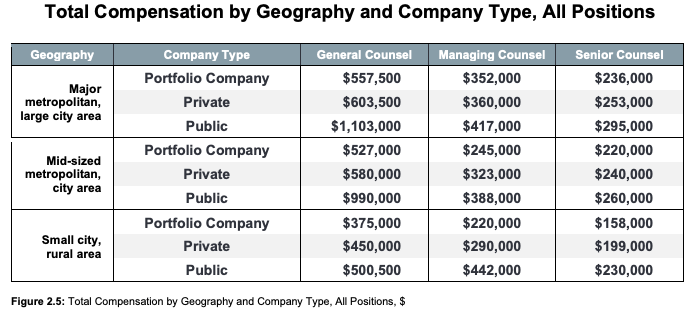The 2026 Legal Efficiency Score Report: Learn how structured intake, automation, and visibility boost performance. Get the free report.

Contact us
.png)
When it comes to in-house legal roles, the titles of Chief Legal Officer (CLO) and General Counsel (GC) are often used interchangeably in various organizations, but they are distinct roles with varying responsibilities. The CLO is a relatively new title, whereas GC is a traditional and widely used title.
The growing prevalence of the CLO title suggests a shift in the scope of the legal department’s top lawyer to focus on business solutions in addition to legal analysis.
According to the 2023 Association of Corporate Counsel 2023 Chief Legal Officers Survey (the “CLO Survey”), the percentage of top lawyers with the title “Chief Legal Officer” increased from 21% to 25%, while the title General Counsel for such top lawyers declined by 4%.
The key difference between a CLO and a GC is that the CLO is business-strategy focused and typically sits on the executive team. In contrast, the GC handles daily legal matters and compliance.
A GC primarily focuses on legal matters, offering legal guidance and support. They ensure that the company complies with all applicable legal requirements. On the other hand, a CLO offers business advice in addition to legal counsel. This role requires a combination of legal expertise and business acumen.
Approximately 20 percent of CLOs’ responsibilities extend beyond the legal department, encompassing the oversight of additional departments or areas such as compliance, cybersecurity response, environmental, social, and governance (ESG) initiatives, ethics, government affairs, privacy, and risk management.
81% of CLOs in the US report to the CEO and dedicate a substantial portion of their time to high-level strategy and executive advice on key business meetings, including attending board meetings. The CLO role is particularly relevant in larger, multinational corporations that face complex regulatory environments.
In contrast, the GC is seen as the primary legal expert for day-to-day legal operations, including contract negotiations, compliance, and team management, and is essential across companies of all sizes for their legal expertise.
The CLO role is a C-suite role that expands upon the GC role. It’s a multi-dimensional role that manages the alignment of legal and business strategies. A CLO’s day often requires balancing immediate, tactical decisions and long-term strategic planning. The CLO will partner with the C-Suite on solving business problems while mitigating risk and ensuring legal efficiency.
According to a 2023 CLO survey, a vast majority of CLOs in the US (81%) report to the CEO. CLOs spend 36% of their time contributing to business strategy and advising executives (13% on strategy development, 12% on board matters and governance issues, and 11% on advising executives on non-legal issues) while spending just 27% of their time providing legal advice.
While many types of companies can employ a Chief Legal Officer, it’s generally more common in larger, multinational corporations with diversified operations across various sectors. These companies typically face a complex web of regulatory and legal requirements that demand a specialized focus.
The responsibilities of a CLO may include:
Think of the GC as the go-to legal expert for daily operations. While their role may sound similar to that of a CLO, the GC tends to have a more hands-on approach to specific legal matters.
They are deeply involved in drafting and negotiating contracts, ensuring compliance on a day-to-day basis, and might lead a team of other lawyers and paralegals in the legal department. Their expertise may be more specialized than that of a CLO, having spent years in a particular industry or area of law that aligns with the company’s primary operations.
Regardless of size, any company that deals with legal matters can have a General Counsel. They provide invaluable legal insights and protection.
The responsibilities of a GC may include:
According to the 2023 Above the Law and Paragon Legal In-House Compensation Survey Report (the "ABL Survey"), the median compensation for GC and CLO roles is $325,000. Compensation for GCs and CLOs can vary widely based on geography, company size, legal department size, and industry.
The survey found that the base salaries for GCs and CLOs vary widely, ranging from less than $150,000 to more than $400,000. While 23% of GCs and CLOs in the survey reported not receiving any bonus, 17% were awarded bonuses that amounted to 60% or more of their base salary.

Source: 2023 Above the Law and Paragon Legal In-House Compensation Survey Report
The BarkerGilmore 2023 In-House Counsel Compensation Report surveyed over 1,400 GCs and found that the GC salary ranged from $375,000 to $1,103,000. The report showed that compensation for GC varied greatly by type of company and company industry, with public technology companies offering the highest average total compensation at $1,526,000. Private technology company GCs averaged $580,000 in total compensation.

Source: The BarkerGilmore 2023 In-House Counsel Compensation Report
Law360 released its Compensation Report: General Counsel in October 2023, showcasing the compensation for GCs at S&P 500 firms based on US Securities and Exchange Commission filings for fiscal year 2022.
Their findings revealed that 50% of these corporations reported their GC or CLO as among the top five named executive officers in terms of compensation. This highlights the significant value and compensation associated with the CLO or GC roles at major corporations, particularly in the technology sector, despite the broader economic challenges of 2022. According to the report, the top 10 GC earners of 2022 by total compensation (which included substantial stock awards) were:
So, if there’s overlap between the two roles, why would a company need both? The answer often lies in the organization's complexity.
Massive corporations operating in various sectors and countries might need a CLO to develop a holistic legal strategy while relying on a GC to handle daily legal intricacies. By splitting these roles, companies can ensure a laser-focused approach to both macro and micro legal concerns.
In some organizations, especially those with larger legal departments comprising at least 30 attorneys, the CEO may opt for both roles. The CLO typically collaborates closely with the board, CEO, and other executive team members, such as the CFO and COO.
Their primary focus revolves around managing these crucial relationships and addressing overarching issues, such as corporate strategy, organizational growth, and shaping the company’s culture. On the other hand, the GC oversees the entire legal team, managing day-to-day legal operations. In such a setup, the GC reports directly to the CLO.
While similar in many aspects, the CLO and GC serve distinct functions. Generally, the CLO has a bird’s-eye view strategy, and the GC addresses day-to-day legal challenges. Understanding these distinctions can help companies staff their legal departments effectively, thereby securing their operations and promoting future growth.
The CLO is a C-suite executive focused on business strategy, risk management, and advising the board and CEO on high-level decisions, spending only 27% of their time on legal advice. The GC is the primary legal expert for day-to-day operations, handling contracts, compliance, litigation, and managing the legal team with a more hands-on approach to specific legal matters.
No, most companies only need one or the other, depending on their size and complexity. Large multinational corporations with legal departments of 30+ attorneys may benefit from both roles, with the CLO managing strategic relationships with executives and the board, and the GC overseeing daily legal operations. Smaller companies usually have just a GC to handle all legal matters.
In organizations with both positions, the GC usually reports to the CLO, who in turn reports to the CEO. When there's only one top legal position, a CLO usually reports to the CEO or board, while a GC may report to either the CEO or, in some structures, to a CLO if that position exists.
According to 2023 surveys, median compensation is $325,000, with base salaries ranging from under $150,000 to over $400,000 depending on company size, industry, and geography. At major S&P 500 companies, particularly in technology, total compensation packages can exceed $13 million when including bonuses and stock awards, with the highest-paid GCs earning $18-27 million.
Scale your legal team's efficiency and effectiveness with modern workflow automation tools designed for in-house legal.